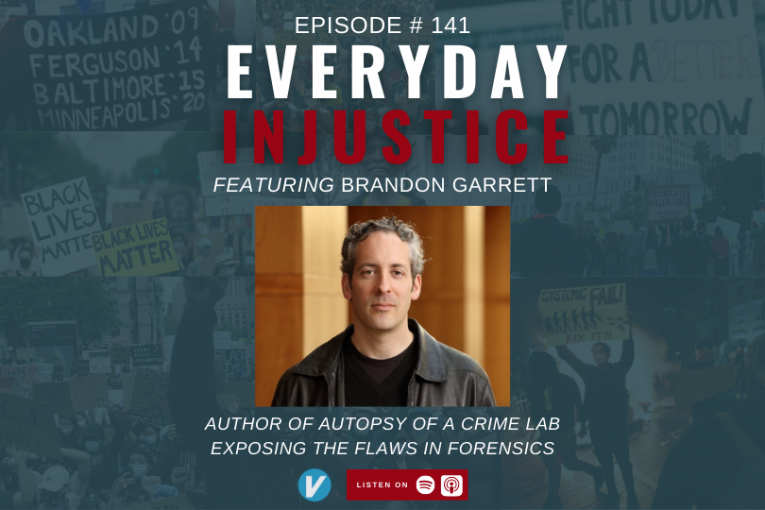

Duke Law Professor Brandon Garrett wrote one of the seminal books of the Innocence Movement, Convicting the Innocent—a must-read classic that highlights the problem of wrongful convictions and its causes.
We have been taught to believe that fingerprint analysis is an ironclad science. But we learned in the case of Brandon Mayfield, who was wrongly identified as the Madrid Subway Bomber—even though he had never left the states—based on a partial match of a fingerprint, that the science has more holes in it than we want to believe.
Autopsy of a Crime Lab is “the first book to catalog the sources of error and the faulty science behind a range of well-known forensic  evidence, from fingerprints and firearms to forensic algorithms.”
evidence, from fingerprints and firearms to forensic algorithms.”
In his book and in his interview with Everyday Injustice, Garrett asks the questions that should have been asked years ago: Where are the studies that validate the basic premises of widely accepted techniques such as fingerprinting? How can experts testify with 100-percent certainty about a fingerprint, when there is no such thing as a 100 percent match? Where is the quality control at the crime scenes and in the laboratories?
The answers to these questions have frightening consequences as they lead to wrongful arrests and, even more alarmingly, wrongful convictions.
